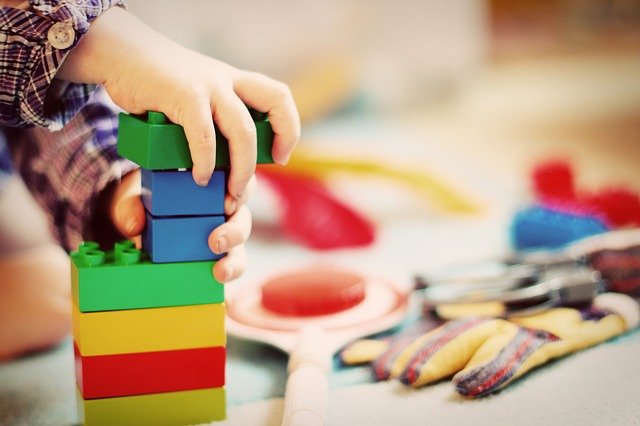The use of technology and screen time has increased over the years and even more so during the pandemic. While it may be convenient and an easy way to entertain, sometimes it can be nice to unplug. In the article, “Non-Tech Holiday Gifts Build Kids’ Language and Learning”, written by Diane Paul, she discusses a variety of ways to use non-tech toys to help encourage language development, problem solving, and social skills.
Some ideas she provides are as follows:
Vocabulary:
Toys: Shape-sorters, ring-stackers, nesting cups, blocks, and balls.
These toys can help teach vocabulary such as shapes, colors, and numbers. They also help develop concepts such as prepositions (i.e. in, on, under, above), action words, and adjectives (i.e. color, size, shapes).
Speech Sound development:
Toys: animals and people manipulatives, farms and barns, vehicles, and musical toys.
These toys can help by working on labeling the items and producing their environmental sounds (i.e. car “vroom” or pig “oink”). Additionally, singing along with the music toys can help promote engagement and language development.
Understanding Cause and Effect:
Toys: wind-up toys, pop-up toy, and bubbles.
These toys help children learn that a certain action or word can result in a desired result (i.e. push button and an item pops up or using the word go make the toy go).
Practicing Problem Solving:
Toys: wooden puzzles, matching games, sorting toys, and pretend games.
These toys help children problem solve through trial and error. Also introduce concepts such as shapes, size, and comparative.
Understanding Sequencing:
Toys: crafts, make your own sets, and books.
These toys help children with sequencing by providing a variety of steps to create final projects. Books focus on what came first, next, and last within the story.
Pre-Literacy Skills (reading and writing):
Toys: Books ranging from peek-a-boo or sensory books to more complex story lines. Jumbo crayons, pads of paper, and play dough.
These toys help develop pre-literacy skills by learning new sounds and decoding word forms. As the books become more advanced, they help develop story concepts (i.e. plot, choices, feelings, characters). Concepts such as time, order, and prediction can also be developed through books.
Engaging in imaginative/role play:
Toys: Figurines, dolls, toy food, pretend sets (grocery/kitchen, doctor/vet) and costumes.
These toys help children develop imaginative play by making up stories, express feelings, and practicing taking different perspectives (i.e. how others may feel).
Learning Planning Skills:
Toys: Puppets, costumes, building toys, train tracks and ramps, and art supplies.
These toys help develop planning skills by making children envision and execute a plan to complete a scene or project.

